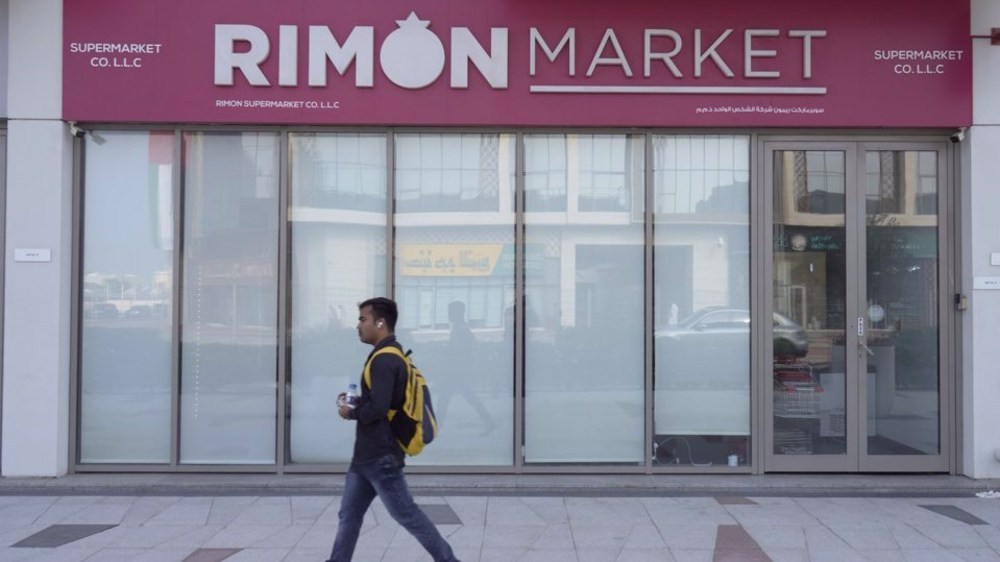UN experts call for release of top Bahraini campaigner Nabeel Rajab
UN human rights experts say Bahrain's detention of prominent opposition figure and leading pro-democracy campaigner Nabeel Rajab is unlawful and violates his right to freedom of expression.
In a formal opinion posted overnight, the experts at the UN Working Group on Arbitrary Detention said that provisions of Bahrain's penal code were "so vague and overly broad" that people were punished for merely exercising their rights under international law.
"The Working Group therefore considers that Mr. Rajab’s deprivation of liberty is arbitrary," the panel said, adding that "no such trial" should have taken place.
The panel said that Rajab's political views were "clearly at the center of the present case and that the authorities have displayed an attitude towards him that can only be characterized as discriminatory.”
The experts said Rajab “has been the target of persecution, including deprivation of liberty, for many years and there is no other explanation for this except that he is exercising his right to express such views and convictions."
The UN panel of five independent experts said the activist, held since June 2016, should be released immediately and compensated.
The opinions of the panel are based on national obligations under international human rights law that they have ratified and are thus legally-binding in nature.
The Manama regime, in a statement, rejected the findings of the UN experts, saying Rajab's trials had been independent and transparent.
Separately, Sayed Ahmed Alwadaei of the London-based Bahrain Institute for Rights and Democracy, in a statement said, "The UN has now unequivocally found that Bahrain is arbitrarily detaining Nabeel Rajab in violation of numerous international legal standards – these vital findings cannot be ignored.”
He called for the kingdom’s allies, including Britain, to back the call for Rajab’s release, adding, "Anything short of that is a tacit endorsement [of] Bahrain’s patently criminal behavior."
Rajab, a leading figure in the pro-democracy protests, was sentenced to five years in prison in February for criticizing Saudi Arabia's airstrikes in Yemen and writing tweets accusing Bahrain's prison authorities of torture.
He was already serving a two-year term over a news article in which he said Bahrain tortured political prisoners.
On December 22, 2016, Bahraini authorities accused Rajab of making comments that “harm the interests” of the Manama regime and other Persian Gulf kingdoms through an article attributed to him and published by French daily Le Monde.
The article slammed the Daesh Takfiri terrorist group for its crimes against humanity. It also condemned Persian Gulf Arab countries for their failure to stop the spread of the violent Wahhabi ideology.
Wahhabism, the radical ideology dominating Saudi Arabia and freely preached by its clerics, fuels the ideological engine of terror groups such as Daesh and Fateh al-Sham, al-Qaeda's Syrian branch formerly known as al-Nusra Front. Takfiri terrorists use the ideology to declare people of other faiths “infidels,” justifying the killing of their victims.
International rights groups have repeatedly called for Rajab’s immediate and unconditional release. They accuse Manama of violating freedom of expression and human rights.
Since February 2011, Bahraini people have been holding peaceful protest rallies on an almost daily basis, demanding that the Al Khalifah family relinquish power and let a just system representing all people be established.
Manama has responded to the protests with lethal force, drawing international criticism.
Bahraini authorities have also detained human rights campaigners, broken up major opposition political parties and revoked the citizenship of several activists.
D-8’s role in Iran’s economy after Cairo summit
China slams US as ‘war-addicted’ threat to global security
China ‘firmly opposes’ US military aid to Taiwan
VIDEO | Press TV's News Headlines
President Yoon Suk Yeol to be removed from office
At least 19 Gazans killed by Israeli airstrikes since dawn: Medics
Leader: Iran neither has nor needs proxy forces
US fighter aircraft shot down ‘in friendly fire’ amid aggression on Yemen












 This makes it easy to access the Press TV website
This makes it easy to access the Press TV website